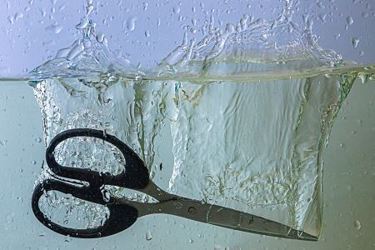Feds To Cut Colorado River Usage As Drought Rages On


Ongoing water scarcity has now resulted in significant cuts mandated by the federal government, a precursor to ongoing burdens for consumers.
“Arizona and Nevada will face cuts in the amount of water they can draw from the Colorado River as the West endures more drought, federal officials announced,” per the Associated Press. “Though the cuts will not result in any immediate new restrictions — like banning lawn watering or car washing — they signal that unpopular decisions about how to reduce consumption are on the horizon, including whether to prioritize growing cities or agricultural areas.”
For drinking water managers in the region, the cuts may not have come as a surprise. After all, nearly all of the U.S. Southwest is experiencing drought conditions and the U.S. Department of Interior asked states drawing from the Colorado River to ease up significantly earlier this year.
But, because those states could not figure out how to reduce their water use on their own, the federal government now plans to impose reductions upon them by declaring a Tier 2 shortage for the Colorado River, which imposes reductions from Arizona and Nevada.
“Arizona will lose an additional 80,000 acre-feet of water — 21% less than its total share but only 3% less than what it’s receiving this year,” per AP. “Nevada also will lose water — about 8% of its supply — but most residents will not feel the effects because the state recycles the majority of its water used indoors and doesn’t use its full allocation.”
For many who are concerned about the Colorado River’s dwindling supply, however, these cuts may not be forceful enough.
“The lack of a public deadline or plan of action from the Reclamation Bureau came as a surprise to stakeholders and experts who feel it’s time for the feds to drop the hammer,” according to CNN. “With the Colorado River running out of water and time, federal lawmakers also urged Reclamation Bureau officials to act with more urgency.”
It seems the time to implement forceful action on drinking water consumption is near, if not already here. But the U.S. Interior seems confident that the states relying on the Colorado River will arrive at a solution themselves.
“Administration officials indicated they did not want to impede state negotiations and wanted to focus on using federal money from climate and infrastructure bills to incentivize voluntary water cuts and make improvements to Western water infrastructure,” CNN reported.
To read more about how state water managers are adapting to ongoing drought, visit Water Online’s Water Scarcity Solutions Center.
